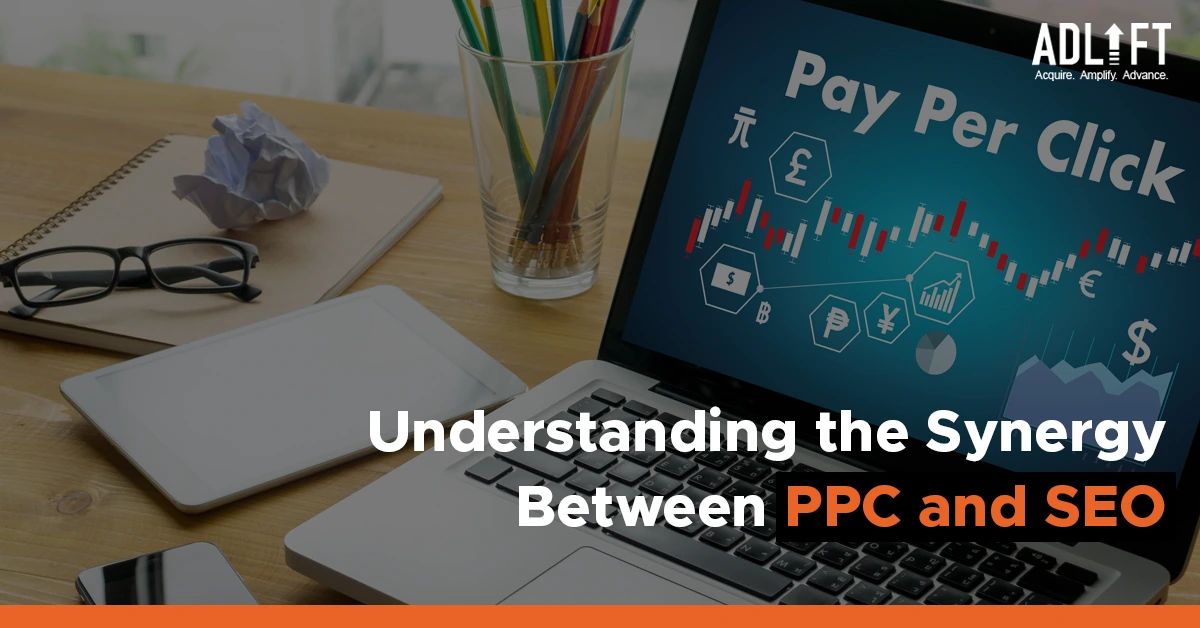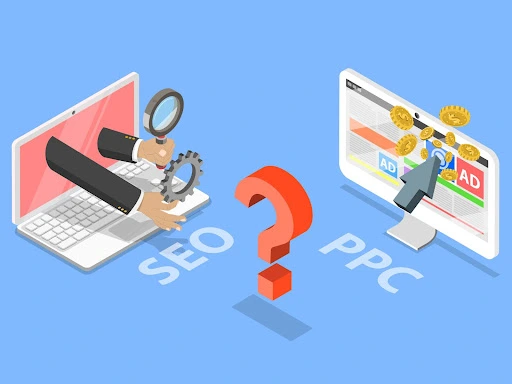Understanding the Synergy Between PPC and SEO

In today’s digital landscape, businesses are constantly looking for effective ways to enhance their online presence and drive more traffic to their websites. Two strategies that often come into play are Pay-Per-Click (PPC) advertising and Search Engine Optimization (SEO). While PPC and SEO are distinct approaches, they can work together synergistically to maximize the visibility and success of your online business. In this article, we will explore the symbiotic relationship between PPC and SEO and how they can complement each other to achieve remarkable results.
The Power of PPC
PPC, or Pay-Per-Click advertising, is a model where advertisers pay a fee each time their ad is clicked. It is a highly targeted advertising method that allows businesses to display their ads prominently on search engine results pages (SERPs) and other relevant websites. The most popular PPC platform is Google Ads, which offers businesses the opportunity to bid on keywords and display their ads to users searching for related products or services.
Instant Visibility and Immediate Results
One of the primary advantages of PPC is its ability to provide instant visibility. Unlike organic search results, PPC ads are displayed prominently at the top of search engine results pages, making them highly visible to users. This immediate visibility can be advantageous, especially when launching a new website or promoting a time-sensitive offer. With PPC, you can drive
targeted traffic to your website right from the moment your campaign goes live.
Targeted Advertising and Enhanced Control
PPC offers unparalleled control over your advertising campaigns. You have the ability to select specific keywords, demographics, locations, and even the time of day when your ads will be displayed. This level of control allows you to target your ads to a highly relevant audience, increasing the chances of attracting qualified leads. Moreover, you can easily monitor and track the performance of your PPC campaigns, enabling you to make data-driven decisions and optimize your advertising strategy for better results.
The Significance of SEO
Search Engine Optimization, or SEO, is the practice of optimizing your website and its content to improve its visibility and ranking on search engine result pages organically. Unlike PPC, SEO does not involve direct payment for clicks. Instead, it focuses on enhancing various elements of your website, such as the quality of content, website structure, and user experience, to improve its search engine rankings.
Long-term Organic Visibility
While PPC provides immediate visibility, SEO focuses on establishing a long-term presence in organic search results. By investing in SEO strategies, you can enhance the visibility of your website in the organic listings and attract a steady stream of traffic over time. Unlike PPC, where visibility ceases once the campaign ends, SEO efforts have the potential to yield sustainable results that can significantly benefit your business in the long run.
Trust and Credibility
Organic search results are perceived as more trustworthy and credible by users. When your website ranks organically on the first page of search engine results, it sends a signal to users that your website is relevant, authoritative, and trustworthy. This trust factor can have a significant impact on the perception of your brand and can lead to higher click-through rates and conversions.
The Synergy Between PPC and SEO
Enhanced Keyword Research
PPC and SEO can collaborate effectively when it comes to keyword research. By running PPC campaigns, you can gather valuable insights into the performance and effectiveness of specific keywords. This data can then be utilized to optimize your SEO strategy, focusing on the keywords that drive the most conversions and deliver the highest ROI. The synergy between PPC and SEO allows you to identify and target keywords strategically, maximizing your
Maximum SERP Real Estate
By combining PPC and SEO efforts, you can occupy a larger portion of the search engine results page (SERP). When your website ranks organically for a specific keyword and you also have a PPC ad running for the same keyword, you effectively dominate the search results. This increased visibility enhances brand recognition and credibility, leading to higher click-through rates and increased chances of conversion.
Testing and Refining Strategies
PPC campaigns offer valuable insights into the performance of specific keywords, ad copy, and landing pages. You can leverage this data to refine and optimize your SEO strategies. For instance, if you notice that certain keywords drive high conversions in PPC campaigns, you can prioritize them in your SEO efforts. The continuous testing and refinement of strategies in PPC can inform your long-term SEO approach, ensuring that you focus on what works best for your target audience.
Boosting SEO with Remarketing
Remarketing, a technique commonly used in PPC advertising, allows you to show targeted ads to users who have previously visited your website. By implementing remarketing campaigns, you can re-engage potential customers and increase brand recall. This can have a positive impact on your SEO efforts, as users who are already familiar with your brand are more likely to click on your organic search listings when they appear in search results.
Accelerated SEO Results
SEO is a long-term game that requires time and patience to see significant results. However, by implementing PPC campaigns alongside your SEO efforts, you can accelerate the process. While your SEO efforts are gaining traction and your website climbs up the organic rankings, PPC campaigns can drive immediate traffic and conversions. This dual approach ensures a steady flow of traffic and revenue while waiting for your SEO efforts to fully mature.
Holistic Data Analysis
The combination of PPC and SEO provides a wealth of data that can be analyzed holistically to gain valuable insights. By examining the data from both channels, you can identify trends, patterns, and opportunities that can further enhance your overall marketing strategy. The synergy between PPC and SEO allows for a comprehensive analysis of user behavior, keyword performance, and conversion data, empowering you to make informed decisions and optimize your campaigns for maximum results.
Conclusion
In conclusion, the synergy between PPC and SEO is undeniable. By combining the immediate visibility and control of PPC with the long-term organic presence and trust-building of SEO, businesses can achieve remarkable results in their online marketing efforts. The collaboration between these two strategies allows for enhanced keyword research, maximum SERP real estate, testing and refining of strategies, boosting SEO with remarketing, accelerated SEO results, and holistic data analysis. To truly excel in today’s competitive digital landscape, it’s crucial to leverage the power of both PPC and SEO, harnessing their collective strength to drive targeted traffic, increase conversions, and surpass your competitors.

